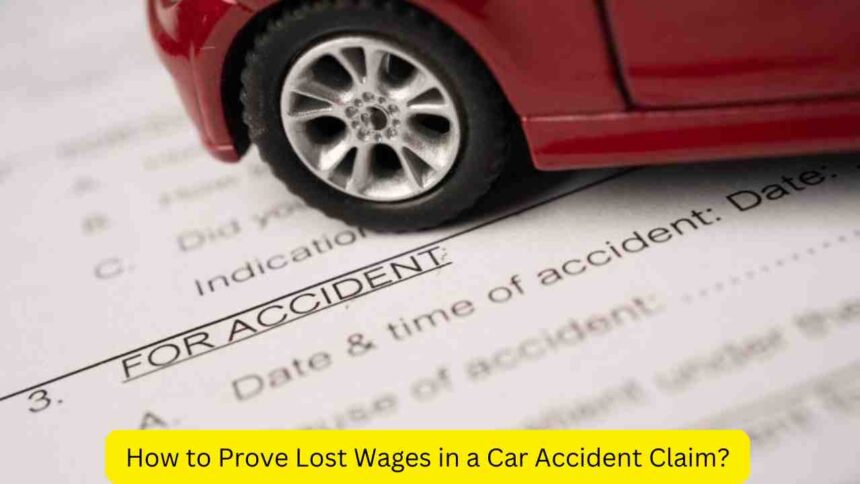A car accident brings physical injuries and emotional trauma. It is additionally accompanied by financial stress arising out of loss of wages. However, legal provisions have been made to recover this loss through compensation. On the flip side, proving lost wages in a car accident claim is a complex procedure that requires extensive documentation and legal expertise for a successful claim.
Documentation for Loss of Wages in a Car Accident Claim
Documentation is vital to proving lost wages. To prove injuries from the car accident were the cause of the loss of wages, solid evidence should include:
- Recent pay stubs: Pay stubs show your regular income before the accident, used as a baseline for calculating lost earnings.
- Tax returns: Prove annual income if pay stubs or pay receipts are not there.
- A letter from your employer: Letter certifying work status, loss of work due to injuries, and loss of earnings.
- Medical documentation: Medical records detailing the injuries due to the accident are crucial documents.
If the site of the accident falls under a jurisdiction with specific laws or rules, personal injury attorneys who specialize in auto accident claims should be consulted to ensure all legal requirements are met and your claim is fully supported by necessary evidence.
Accounting for Loss of Future Earnings
In some cases, your injuries may prevent you from returning to work for an extended period or, in some cases, permanently. The accident may also render you unable to work in the same capacity as before, making you eligible to claim loss of future earnings. The nature of these claims is complicated due to the requirement to estimate the potential future income. To prove loss of future earnings, the factors typically considered are:
Occupation and the earning potential prior to the accident.
- The severity of injuries and their impact on continuing work.
- Age, education level, and skills,
- Time out of work or expected to be out of work or any permanent disabilities.
- Attorneys work with economists or vocational experts to calculate the damages and provide a reliable estimate of the loss of income over time.
Proving Lost Wages for Self-Employed Individuals
Self-employed individuals may find it more difficult to prove loss of wages than salaried employees. Employees can produce pay stubs; however, the self-employed require additional documentation to support their claims, including:
Tax returns: Document showing current annual income and loss due to the accident.
Invoices or contracts: Documented past earnings and ongoing projects impacted due to the injuries.
Bank statements: proof of regular income prior to the accident.
Additionally, expert testimony outlining the value of the work missed will be required. Self-employed individuals should work with personal injury attorneys specializing in auto accident claims to present a compelling case for compensation.
Using Paid Time Off and Sick Leave
Individuals can use paid time off (PTO) or sick leave for recuperating from injuries and claiming compensation (PTO) for the time missed from work. Use of paid time off does not mean loss of wages cannot be claimed. The argument is that the use of PTO or sick leave should not have been used due to someone else’s negligence. Therefore, as an accident victim, compensation for the time off due to injuries is your right.
An attorney can help you to frame your claim cleverly to include the used PTO or sick leave, supporting the contention that time could have been used more productively had the mishap not occurred.
The Role of Expert Testimony
To prove lost wages, expert testimony is critical, especially loss of future earnings or the ability to work. Medical experts can certify the severity of injuries and their impact on work. Economists or financial experts can help calculate the loss of future earnings or business opportunities. This is particularly crucial for self-employed individuals.
Expert testimony can be very helpful in cases where the insurance company disputes the compensation amount. Legal professionals handling similar cases on a regular basis are skilled at presenting this evidence in court or during negotiations.
Conclusion
A thorough understanding of the legal system is necessary to prove loss of wages in an accident. Additionally, for a successful payout, substantial documentation and expert testimony are also required as an employee or self-employed. Personal injury attorneys who specialize in auto accident claims can help navigate this process by helping you gather the necessary evidence and handle complex legal processes while you focus on recovery.





